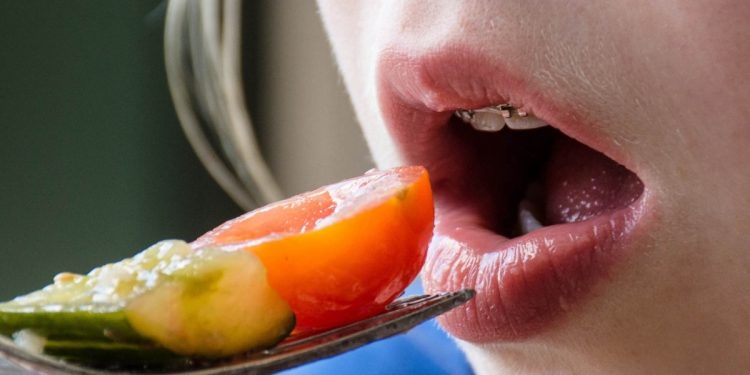Embarking on a journey with braces is a significant step towards achieving a straighter and healthier smile. However, to ensure the effectiveness of orthodontic treatment, it’s crucial to be mindful of certain habits and choices. This guide explores what to avoid with braces, offering insights into practices that can impact the treatment process and overall oral health.
Understanding Orthodontics
What are Braces?
- Orthodontic Appliances:
- Braces are orthodontic appliances designed to correct misalignments, gaps, and other issues in the teeth and jaw.
- They are made up of wires that gently push the teeth into the appropriate positions, while brackets are affixed to the teeth.
- Types of Braces:
- Among the choices are clear braces, invisible aligners, and traditional metal braces.
- The choice depends on individual preferences and the orthodontic treatment plan.
What to Avoid with Braces
Foods that Pose Risks
- Sticky and Chewy Foods:
- Avoid sticky or chewy foods that can get stuck in the brackets and wires.
- Examples include chewing gum, caramel, and certain types of candy.
- Hard and Crunchy Foods:
- Hard and crunchy foods can potentially damage brackets and wires.
- Steer clear of items like hard candies, nuts, popcorn, and ice.
Unhealthy Oral Habits
- Nail Biting:
- Nail biting can exert unnecessary pressure on braces and lead to damage.
- Breaking the habit helps protect both the braces and the teeth.
- Chewing on Objects:
- Avoid chewing on pens, pencils, or other objects, as this can also harm the braces.
- Developing alternative stress-relief habits is advisable.
Inadequate Oral Hygiene Practices
- Neglecting Brushing and Flossing:
- Proper oral hygiene becomes even more critical with braces.
- Neglecting brushing and flossing can result in plaque buildup and enamel damage.
- Using the Wrong Tools:
- Choose orthodontic-friendly tools like soft-bristled brushes and floss threaders.
- Regular dental check-ups ensure that any emerging issues are addressed promptly.
Ignoring Orthodontist’s Instructions
- Skipping Appointments:
- Regular orthodontic appointments are essential for adjustments and progress checks.
- Skipping appointments can prolong treatment time and affect outcomes.
- Disregarding Care Instructions:
- Follow the orthodontist’s care instructions diligently.
- This includes wearing rubber bands as prescribed and using any additional appliances correctly.
Playing Contact Sports Without Protection
- Sporting Accidents:
- For individuals involved in contact sports, wearing a mouthguard is crucial.
- Mouthguards provide protection against potential impact to the face and braces.
- Investing in a Custom Mouthguard:
- Consult with the orthodontist to obtain a custom-fitted mouthguard.
- This ensures optimal protection and comfort during sports activities.
Using Teeth as Tools
- Opening Packages or Bottles:
- Avoid using teeth to open packages or bottles, as this can lead to breakages.
- Use the appropriate tools to prevent damage to the braces and teeth.
- Biting Non-Food Items:
- Refrain from biting non-food items like pen caps or fingernails.
- Such habits can exert excessive force on the braces.
Ignoring Discomfort or Issues
- Pain or Discomfort:
- It’s normal to experience some discomfort with braces, especially after adjustments.
- However, persistent pain or issues should be reported to the orthodontist promptly.
- Addressing Emergencies:
- In case of a broken bracket or wire, seek immediate assistance from the orthodontist.
- Ignoring such issues can impede the progress of treatment.
Caring for Braces and Oral Health
Adopting a Braces-Friendly Diet
- Soft Foods:
- Include soft foods in the diet to minimize stress on braces.
- Options include yogurt, mashed potatoes, and smoothies.
- Cutting Foods into Small Pieces:
- For harder foods, consider cutting them into smaller, more manageable pieces.
- This reduces the risk of damaging braces.
Establishing a Robust Oral Hygiene Routine
- Regular Brushing and Flossing:
- Brush teeth after every meal and floss daily to prevent plaque buildup.
- Use interdental brushes or floss threaders to clean between brackets and wires.
- Fluoride Mouthwash:
- Incorporate a fluoride mouthwash into the routine for added protection against cavities.
Protecting the Mouth During Sports Activities
- Wearing a Mouthguard:
- Invest in a high-quality, orthodontic-friendly mouthguard for sports activities.
- This minimizes the risk of injuries to the face and braces.
Maintaining Regular Orthodontic Check-ups
- Scheduled Appointments:
- Attend all scheduled orthodontic appointments for adjustments and evaluations.
- This ensures that the treatment plan stays on track.
- Open Communication:
- Communicate any concerns or issues promptly with the orthodontist.
- Early intervention can prevent potential complications.
Conclusion
Navigating orthodontics with braces requires a combination of mindful practices, healthy habits, and regular professional care. By understanding what to avoid with braces and adopting a proactive approach to oral health, individuals can contribute to the success of their orthodontic treatment. Remember, each person’s orthodontic journey is unique, and following personalized care instructions from the orthodontist is key to achieving a beautifully aligned smile.







